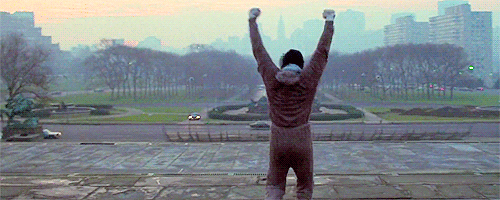Here’s the latest in the #OTRBlog series from our Mental Health Practitioner – this time talking all things exercise!
I’ve recently been reading several other mental health blogs, usually from the perspective of someone with current or past difficulties. It’s useful to be informed by others, and these blogs are often extensive and quite deep on a personal level due to the anonymity of being online.
Something that everyone has a view on is exercise and mental health. I’ve read and myself experienced the good, the bad and the ugly parts of exercise and emotional wellbeing. Many factors come into play around how we look, how we feel and how we fit in. However, on the whole, the consensus is that movement and fitness, in whatever shape or form, are beneficial. Experts say so, doctors say so and apparently so do lots of people living with mental health difficulties.
Personally, I can’t get enough of the stuff, it clears my mind and stops me tallying up to-do lists.

I recently received an assessment letter whereby a young person referred to advice made from their GP suggesting ‘more fresh air, a good night’s sleep and finding a hobby’ to remedy their low mood. Of course, for some this will solve many problems but sadly it isn’t so straightforward.
Fresh air clears your head and helps with sleep; hobbies such as walking or running are physically tiring and less in the ‘thinking brain’ so they can be meditative and at the same time release some of those sweet endorphins. The problem is, if a young person receives this information and has social anxiety, low confidence and a lack of motivation, fresh air and a new hobby might feel like jumping to the moon and back.
The Good
Benefits include increased serotonin, sense of achievement, reduced stress, sense of control, enjoyment and opportunity for connection with others.

The Bad
It can be really hard to motivate yourself or to find the confidence to start something new. Sometimes people worry about having the ‘correct clothing’ or not being able to afford it, let alone a lack of energy.

The Ugly
Once you get going, the potential for stopping during a period of downtime can take a knock on your sense of self. Guilt or shame might crop up – making hiding under the duvet a much safer option. With even a simple thought of lycra making you shudder.

It’s a bit of a messy picture because in reality nothing is as easy as it sounds. Identifying the benefits is doable but it’s the negatives which need some awareness to avoid feeling like a failure.
A young person I work with joined the gym in January, whereas last August it was an absolute no-no. She enjoyed the first few months and felt positive afterwards. A little while later, she came up against a brick wall when her mood suddenly slumped and she couldn’t bring herself to go. With some gentle encouragement and a reminder of the refreshing energy she had previously reported, she mustered up the energy to return and text me saying how good it felt.
I can’t dispute the challenge of getting up and off the couch when everything feels dark and glum, but I will boost others to borrow a friend’s dog, drag a friend for a jog or boogie at home to a Youtube video. Anything counts, so go get ‘em tiger!
Want five ways to get moving and feel better? Check out the video below by Mind.